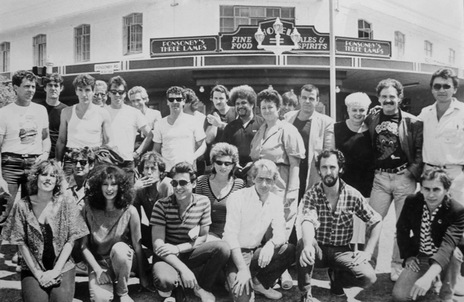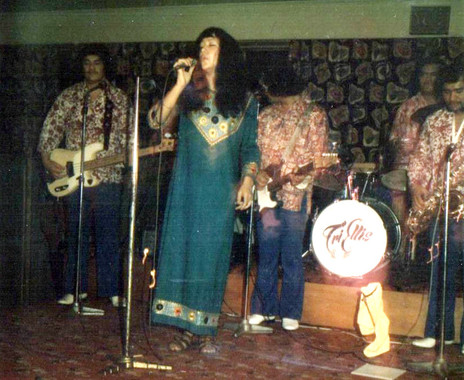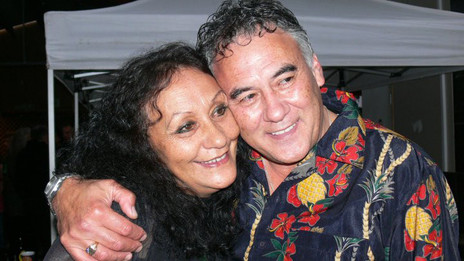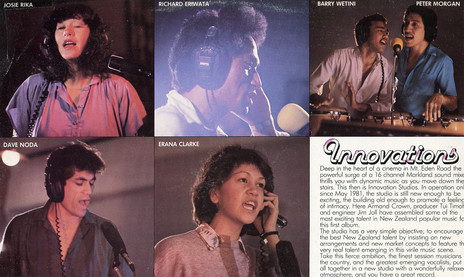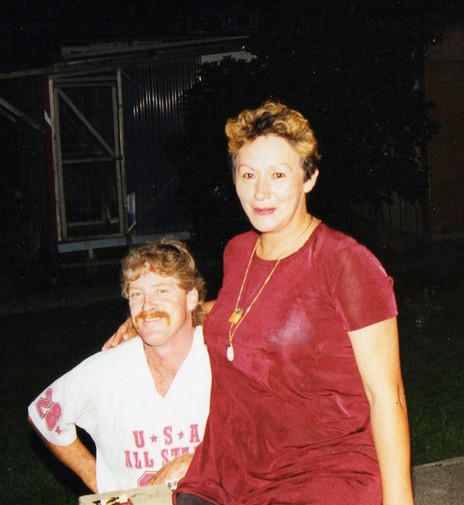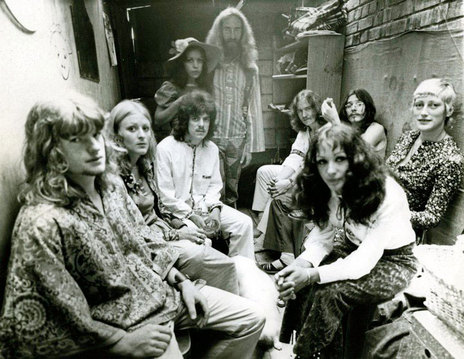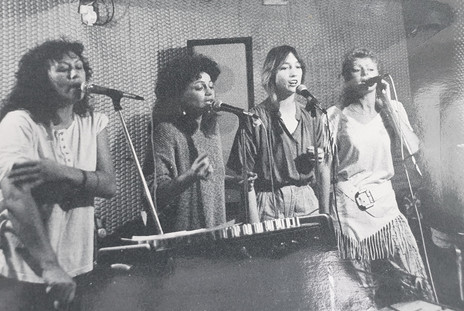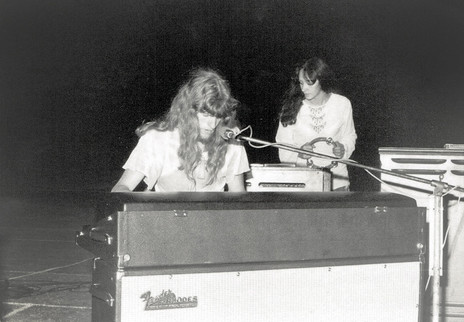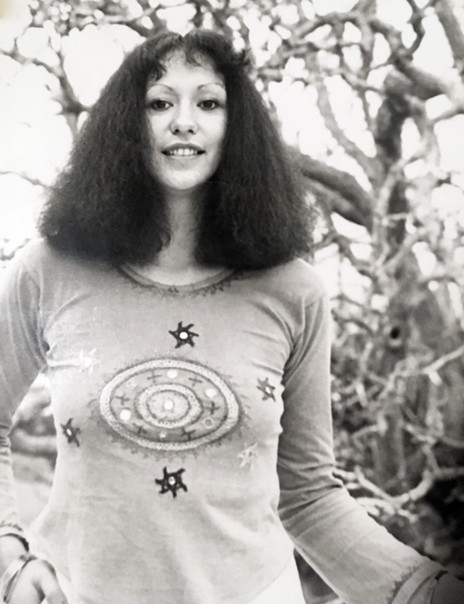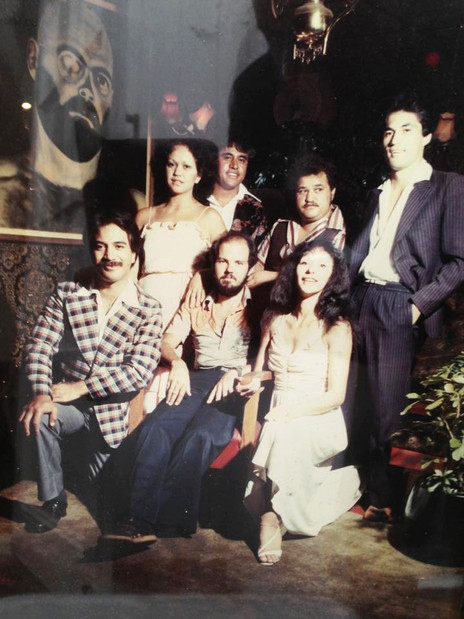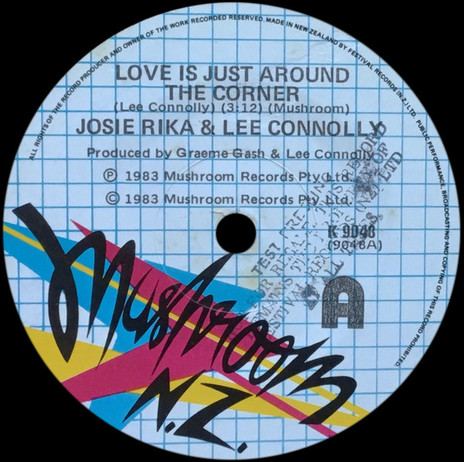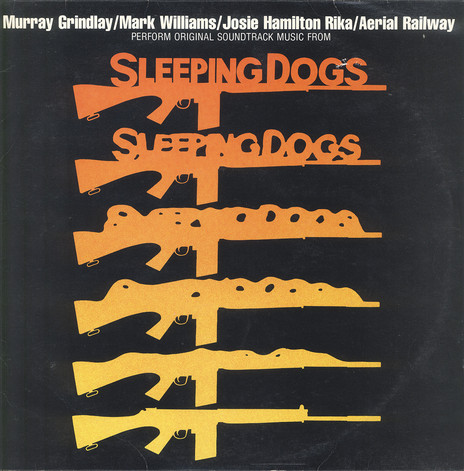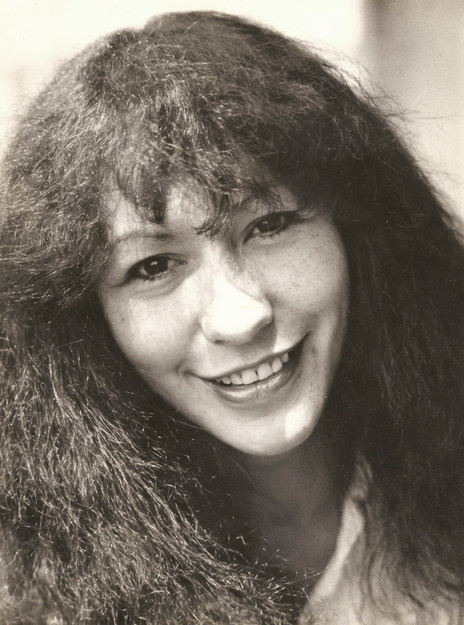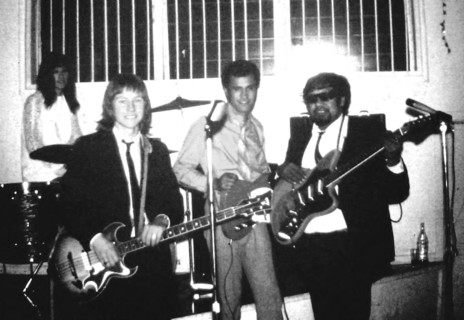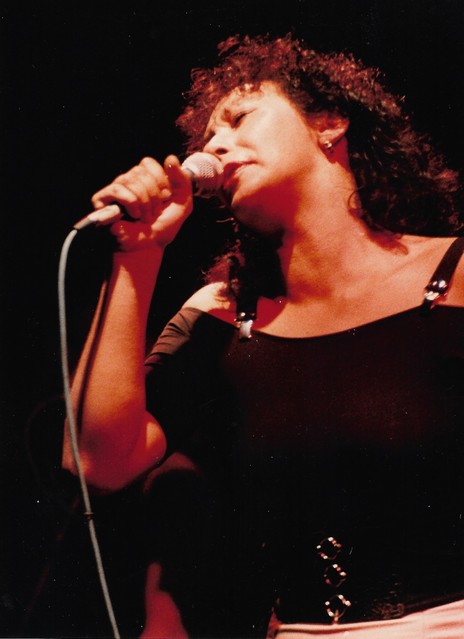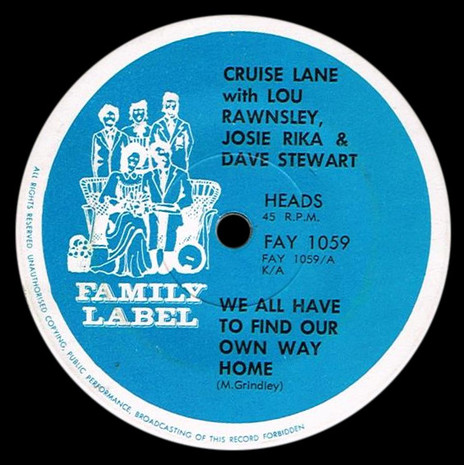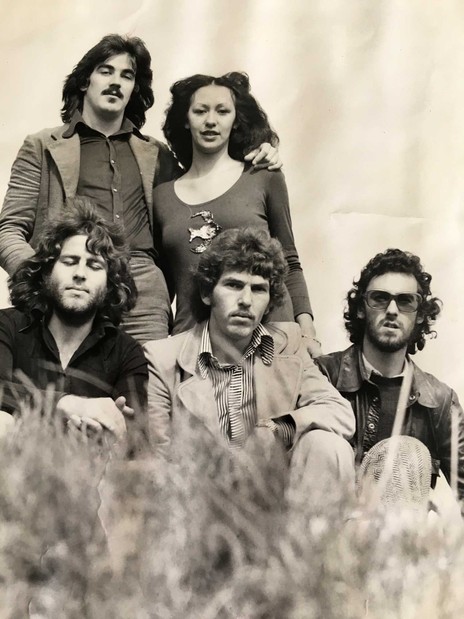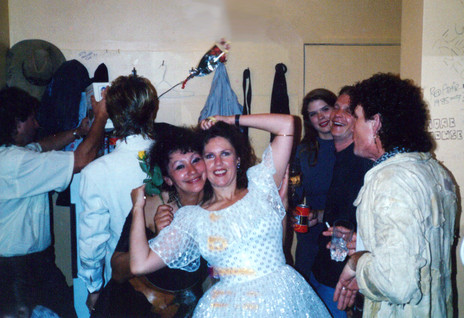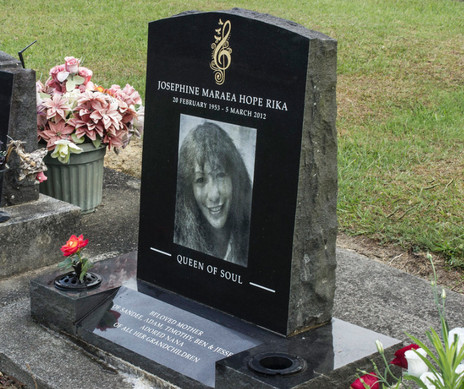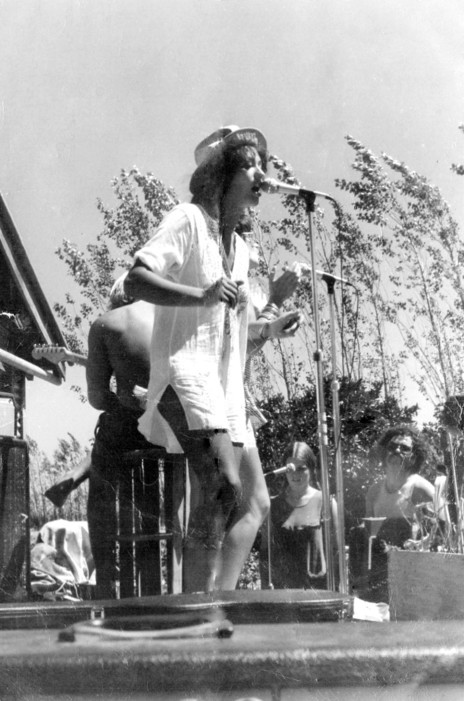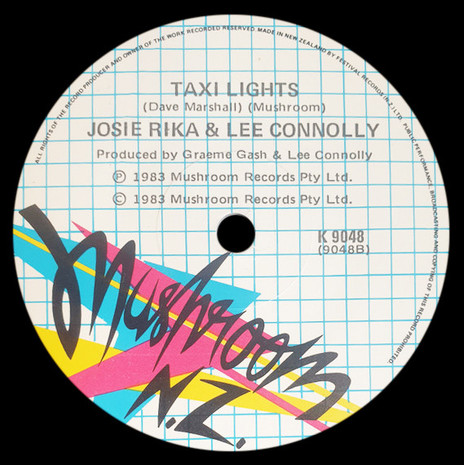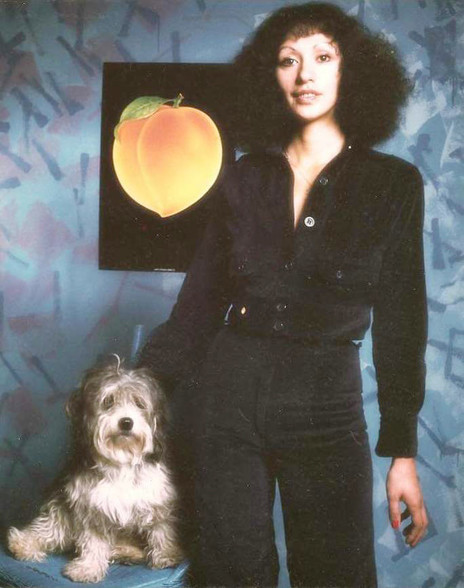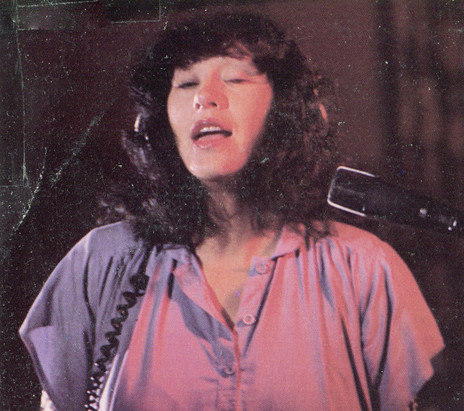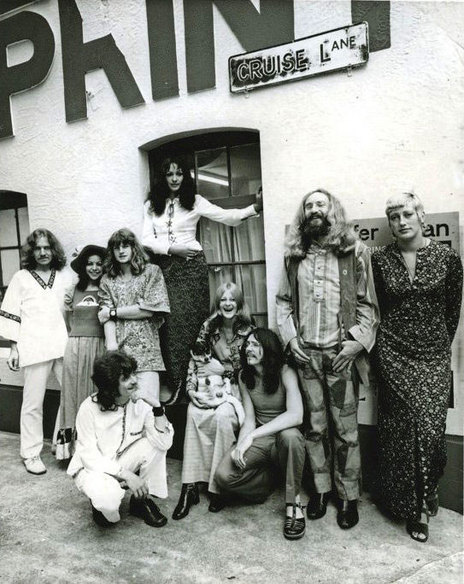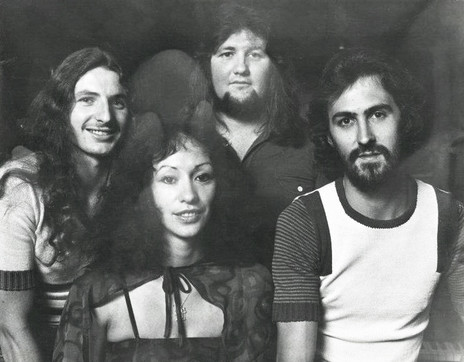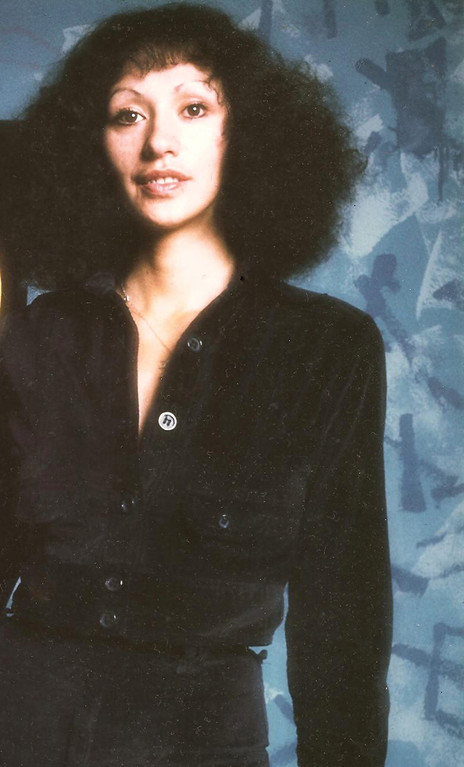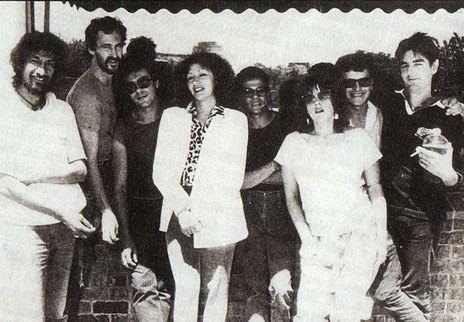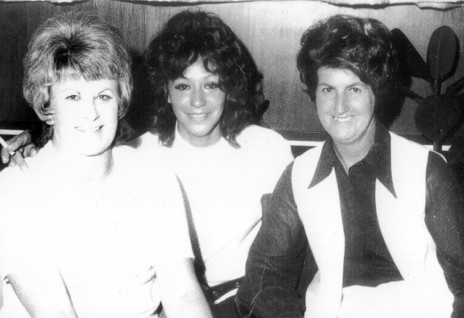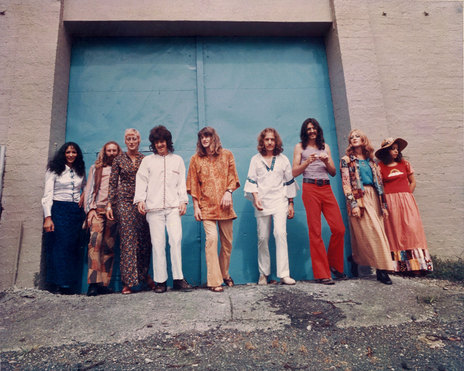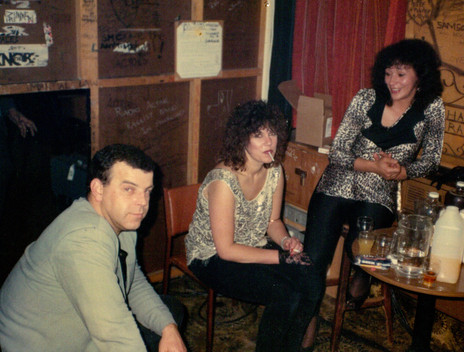Twelve songs – written by Rika, Waves pair Graeme Gash and David Marshall, and Mancunian singer/songwriter Lee Connolly – were laid down at Harlequin Studios, but only two tracks would see the light of day when salvaged by Mushroom NZ. According to Gash, Rika was crushed.
It was not only a devastating blow for the singer but for everybody involved in bringing the project to the verge of release. Harlequin engineer Paul Streekstra believed it was a tragic waste of an amazing, though at times quite dark, collection of songs. “Anyway it was very disappointing that it didn’t get released as we’d poured so, so much into it emotionally and creatively,” he said. “And we all believed that Josie deserved a break.”
Her legacy remains through numerous jingles in the 1970s and 80s, masterful backing vocals on recordings by all manner of New Zealand artists as diverse as John Grenell, Chris Thompson, Wayne Roland Brown, Mark Williams, John Hanlon, Stephen Bell-Booth and Sonny Day, and stints fronting two of Auckland’s biggest drawcards, Rainbow and the Tuhi Tama Band.
Her most conspicuous recorded work was as the uncredited backing vocalist on the 1983 DD Smash hit single ‘Outlook For Thursday’. The Josie Rika story is very much the New Zealand equivalent of the likes of Darlene Love and Merry Clayton’s in the 2013 documentary 20 Feet From Stardom.
The youngest of Percy and Patsy Rika’s four children, Josephine Maraea Hope Rika was born at Waihi Hospital on February 20, 1953. She grew up in a musical home with her dad’s big, resonating voice and harmonica playing. Singing was always a large part of family gatherings.
At a party with her softball team in South Auckland in 1969, 16-year-old Josie Rika joined in on a jam session being led by Mo Dawson. He was blown away and asked her if she was keen on starting a band. Named The Blue Souls, they lasted around 18 months and included lead guitarist Robert Morse, bass guitarist Trevor Judge and an English drummer named Steve.
Also at the party was softballer Grahame Johnstone, who fell for Rika when she sang Lulu’s ‘To Sir With Love’. The two became an item and in 1971 had a daughter, Sandee. The relationship didn’t last and Sandee was raised whāngai by her grandparents to the age of 10 so her mum could continue her singing career.
Rika was part of the extended Cruise Lane whānau when they opened for Daddy Cool.
Rika was part of the extended Cruise Lane whānau when they opened for Australia’s Daddy Cool at Carlaw Park at the end of 1971. Formed for a residency at the Embers nightclub earlier in the year, Cruise Lane featured singers Al Hunter and Kaye Wolfgramm and added Rika, Hunter’s wife Shirley and a waitress named Pauline as Delaney-and-Bonnie-style backing vocalists when the circumstances allowed.
“I first remember Josie bouncing into Embers nightclub one Friday night in the early 1970s; tall and beautiful, big smile and crazy hat,” Cruise Lane pianist Paul Lee said. “By the time Cruise Lane was playing under the Civic a year or so later, Jo was doing soul spots with us. I even remember she and I playing tenor saxes when she sang Aretha Franklin’s ‘Rock Steady’.”
Drummer Bud Hooper was so impressed by Rika with Cruise Lane that he asked her to audition for his new Funky Truckin’ Band, which she successfully did. Just returned after a year of study at the Berklee School of Music in Boston, and playing in bands in Boston and New York State, Hooper was in the process of putting a good local funk band together.
He and guitarist Paul Clayton brought together Rika, bassist Kerry Moore, tenor saxophonist Andrew Kimber and Dick Wyeth, on alto, soprano and flute, to form the Funky Truckin’ Band for a residency at The Crypt from 10pm to 4am, Wednesday to Sunday. It lasted from about March to October 1972. The repertoire consisted of James Brown, Van Morrison, some Paul Butterfield Blues Band, Joe Cocker and Cahoots-era The Band.
“I remember that Josie was a great singer with a magnetic stage presence and she knew how to party well,” Hooper said. “She was also a diligent musician and always learned the material well beforehand and was on time for rehearsals every Tuesday morning at 10am at the Crypt. Sometimes she brought her little baby girl with her who slept as we rehearsed.”
When The Funky Truckin’ Band quit The Crypt, Rika stepped aside and was replaced by ex-Farmyard singer Paul Curtis. The band ended up at Billy TK’s club The Boulevard, in Palmerston North, as they “chased down a residency at the Downtown Club in Wellington because The Quincy Conserve were possibly leaving. They didn't leave and we unfortunately decided to call it a day.”
Rika’s appearances with Cruise Lane had also brought her to the attention of newly arrived Hamilton band Anteapot, who were playing at Tabla 2. Club owner Johnny Tabla told them he was opening a new club, the Do Re Mi, and invited Anteapot to become resident band. He also suggested they use various singers to front the group.
Changing their name to Staff, they tried Corben Simpson and Tommy Ferguson but neither lasted long. They had much more success with Josie Rika. Guitarist Ray Goodwin remembers they got on well with Rika and learned her soul numbers including The O’Jays’ ‘Back Stabbers’ and Carole King’s ‘Smackwater Jack’.
“I think Josie thought we were a really weird bunch,” Staff bass guitarist Todd Hunter added. “She was correct.” When they left the Do Re Mi late in 1972, Staff changed their name again, this time to Dragon.
In 1975, Murray Grindlay said he rated Rika as the most versatile vocalist in the country.
By then, former Underdogs singer Murray Grindlay had replaced Al Hunter in Cruise Lane. When they broke up, Grindlay kept the name and released the single ‘We All Have To Find Our Own Way Home’ credited as Cruise Lane with Lou Rawnsley, Josie Rika and Dave Stewart. For Rika, it was the beginning of a long association with Grindlay as he forged a mega-successful jingles career.
In a NZ Herald article from December 1975, Grindlay rated Rika as the most versatile vocalist in the country. “She sings pop, rock, jazz, soul, ballads, blues, and Josie is my first choice when I want somebody to sell sunglasses, bras or the image of a chemist or department store,” he told the paper.
The same article mentioned Rika having a 30-minute television show with pop sensation Mark Williams being “due to be screened on TV2” and a planned LP with Grindlay. The LP never eventuated and Williams couldn’t recall the show or whether it was aired but told AudioCulture he was “an absolute die-hard fan of Josie Rika”.
“In the early 70s after our Friday-Saturday Face gigs I would race down to The Crypt to see her sing with Funky Truckin' Band,” Williams said. “The brass, her voice and presence! The band did a lot of tracks from Van Morrison’s His Band And The Street Choir LP. The biggies for me were ‘I’ve Been Working’ and ‘Domino’. I never knew Van Morrison till I saw Funky Truckin’.”
When Cruise Lane ended in 1973, Paul Lee, bassist Paul Woolright, and drummer Bruno Berens rehearsed a soul repertoire with Rika, Berens’ wife Corina, and former Underdogs and Human Instinct bassist Neil Edwards (on guitar). Resident Happen Inn singer Tommy Ferguson liked what he saw and took them on the New Zealand Breweries circuit as his Good Time Band.
“This line-up gained semi-regular TV spots but only ever playing covers, no originals,” Lee said. “On the road, touring two weeks in every month, Jo and I got close.”
The Good Time Band folded and Rika, Woolright and Edwards formed Rainbow, bringing in Woolright’s former Ticket rhythm section partner Ricky Ball on drums, and ex-The Troubled Mind member Len Whittle on keys.
Rainbow were an instant hit, with a residency at the Tainui Tavern in Panmure and regular soirees to breweries circuit pubs around the North Island, performing their own sets and backing floor shows for the top pop stars of the day.
Tainui Tavern publican Jock Ruddock financed a Rainbow single and suggested they cover The Platters’ 1955 hit ‘Only You’. Produced by Murray Grindlay, ‘Doctor Rock And Roll’ b/w ‘Only You’ was released on Family Records in 1974. Rika and Woolright shared vocals on both. Any hope of getting ‘Only You’ to radio disappeared when Ringo Starr released it as the first single from his Goodnight Vienna LP.
Woolright would do most of the backing vocals in Rainbow and the occasional lead vocal to give Rika a spell. “We both loved good backing vocals, especially the soul/Aretha type and I loved singing with her, great to phrase and pitch off,” Woolright said. “We had it down back then and I utilised those skills I learnt from and with Josie later with Dave McArtney & The Pink Flamingos, and Paul Hewson and I doing the BVs.”
Rainbow ended when Edwards and Len Whittle left to join a briefly re-formed Headband in 1975. Alongside Kaye Wolfgramm and The Yandall Sisters, Rika featured on backing vocals on the rousing ‘(I Get High) Olena’ from Headband’s Rock Garden LP.
Headband’s Tommy Adderley and Jimmy Hill enlisted Rika and Woolright from Rainbow, as well as guitarist John Kristian and pianist Peter Woods, to form Jimmy & The Jets, named after Hill. It was with this unit at the Entertainers Club in Manners Street, Wellington, that Country Flyers bass guitarist Neil Hannan first encountered the power of Josie Rika.
At the Entertainers Club in Wellington, Rika and her visiting band “blew the resident band off the stage” – Neil Hannan
“She was an absolutely stunning creature who looked like an Egyptian goddess,” Hannan said. “I remember the band being very loud, by Wellington standards; they kind of blew the resident band off the stage. But everybody was very friendly.”
Rainbow reappeared with a line-up of Rika, Edwards (switching to bass), guitarist Grant Ryan and his older half-brother Dennis Ryan on drums. The new unit debuted in Hawke’s Bay. A newspaper article of the time stated that the band described themselves as “a bit like the Average White Band, a blue-eyed soul band”. It also reported Rainbow were recording an album. That never eventuated.
“We used to run into each other on the road during the 1970s pub circuit days of the New Zealand music scene,” Hannan recalled. “I would often be in Napier at the Cabana with the Country Flyers and Josie would be at the Leopard Tavern with her band Rainbow, with Neil Edwards and the Ryan brothers. We would all get together at some seedy motel or the house bar at the Cabana after the gigs. There was a lot of camaraderie on the road in those days.”
Married to Bruce Hamilton in 1975, Rika was credited as Josie Hamilton Rika on the soundtrack album for Roger Donaldson’s groundbreaking 1977 movie Sleeping Dogs. Recorded at EMI Studios in Lower Hutt, Rika sang ‘Hello Love, Goodbye Blues’, written by Murray Grindlay.
By the mid-70s, she was in high demand with jingles producers Grindlay, Glyn Tucker and Mike Harvey, sometimes singing alongside other vocalists including Kaye Wolfgramm, Kim Hart, Jacqui FitzGerald and Malcolm McCallum.
“Josie had a really warm sound that was fun to sing with as another singer,” McCallum recalled. “I sang on quite a few sessions with Josie, we were a good blend for radio. Josie was a wonderful singer and person to work with and be around in the studio. She added the magic element to the track time and time again, and as a young 20-something I learned a lot from singing with her on the tracks we did.”
Another of the Grindlay jingles roster, fingerstyle guitarist/singer/songwriter Chris Thompson called on Rika to record the duet ‘The Station Mistress And The Express Driver’ at Mandrill Studio for his 1976 Direction Records LP Echoes From The Pit.
“We went into the studio and I explained what I wanted and ran through it,” Thompson said. “She cottoned on right away and we sat facing each other, singing to each other, while I played my Martin 000-28. She was inspirational to sing with and motivated me to play well and enjoy the performance, which was live in the studio and didn't take more than a couple of takes to get what I wanted.”
A regular at Rika’s gigs, when he wasn’t on tour himself, was high-profile New Zealand singer/songwriter John Hanlon. Human Instinct guitarist John Donoghue had introduced the pair in the mid-70s at Tommy Adderley’s Granpa’s, a late-night haunt for musicians and entertainers.
“We became as close as siblings,” Hanlon said. “Whenever I was in Auckland, Josie, myself, sometimes joined by her brother Darryl and cousin Moses, would meet at Granpa’s to listen to the great resident bands, with Josie and Moses joining in on occasions. At other times I’d drive out to see her perform with whatever band she was singing with, most memorably with Rainbow at the Tainui Tavern.”
Unable to attend Rika and Bruce Hamilton’s wedding because he was on the road, Hanlon wrote and recorded ‘Sandy Your Mother’s In Love’ straight to vinyl as a wedding gift. Producer/pianist Mike Harvey liked the song so much it was re-recorded for Hanlon’s 1976 LP Use Your Eyes. “I found out later that Sandy, her daughter, was in fact Sandee,” Hanlon added. “My mistake.” Rika sang backing vocals on the tracks ‘Twenty Six Years’ and ‘Peaceful’.
The scene around Granpa’s had started to attract an unsavoury element flush with drugs and cash – an element that found musicians easy prey. “Josie and I promised each other we would never fall victim to these evil bastards,” Hanlon said.
The two lost touch when Hanlon left the music business but caught up by chance just before he relocated to Australia in 1981. He spied her walking along the road as he was driving past. “I stopped the car. ‘Where the hell have you been hiding?’ She looked embarrassed. ‘I broke my promise to you. I couldn’t face you. I was so ashamed.’”
Rika was a regular guest artist with her former Good Time Band mates Corina and Bruno Berens when their Papa Band of the Land scored a six-month residency at The Gluepot and Casper’s in South Auckland in 1977. For a time she joined Peter Woods and Paul Woolright in Woody, the band that would eventually evolve into Dave McArtney & The Pink Flamingos.
“I’d drive out to see her perform with whatever band she was singing with” – John Hanlon
Hello Sailor and producer Rob Aickin engaged Rika to sing backing vocals on ‘Blue Lady’ while recording the band’s debut album at Stebbing Recording Studios. Sailor guitarist Harry Lyon couldn’t remember why the vocals weren’t retained but guessed they were probably deemed too soulful. However, Rika still has a presence on the song with a sigh and a giggle that the band kept in just after the harmonica begins in the outro.
Meanwhile, Rika had met guitarist Tuhi Timoti, and Timoti had done the odd gig with her and Mo Dawson. She started showing up at upstairs Auckland club General Jackson’s to jam with Timoti and another gun guitarist, Tama Renata.
The guitarists joined forces as the Tuhi Tama Band, adding singers Rika, Erana Clark, Dave Noda and Armand Crown and drummer Chris Fox to pull in the punters for hugely successful residencies at Cleopatra’s (the Tainui Tavern) and Aladdin’s nightclubs. Clark remembered Rika would knock them dead with Chaka Khan’s ‘I’m Every Woman’.
When Paul Lee’s Whitianga-based band Tribrations were offered an hour slot on the main stage of the final Nambassa Festival in January 1981, he called on his former Cruise Lane bandmate Josie Rika.
“Jo did us the favour of coming out as our lead singer,” Lee recalled. “We did a second gig with this line-up shortly after at the Taratara anti-mining festival in the Far North. Legendary soundman Moby recorded the set. Phil Toms [Tribrations guitarist who would join Herbs before the year was out] remastered the cassette. Jo’s vocals on my originals make it one of my most treasured recordings.”
In 1981, Tuhi Timoti was MD on and produced Innovations – A Collection Of Top Māori Talent for K-tel. The album included songs from Peter Morgan, Erana Clark, Dave Noda and Richard Eriwata, with a heavily pregnant Rika contributing country song ‘Dark Moon’, Candi Staton’s soul hit ‘Young Hearts [Run Free]’, Blue Magic’s ‘Sideshow’ and the pop duet ‘Hey Paula’ with Barrie Wetini. Around the same time she was part of a top 40 covers band with keys player Don Roberts, bassist Max Stowers and drummer Bruno Berens.
All of Rika’s hard work looked to be bringing her some recognition in 1982 when a major record label became interested in doing an album with her. Having recently been enamoured with ex-Waves singer/guitarist Graeme Gash’s After The Carnival LP, Rika approached Gash unintroduced to produce the record.
“I did suggest that a good soul/R&B producer might be more appropriate, but that wasn’t what she was looking for,” Gash said. “I discovered that saying no to Josie Rika wasn’t really an option. This was New Zealand music in the early 1980s, so, naturally, it was a ‘love’ job with a lot of hours attached. Back then you did it anyway.
“We wrote, and then recorded at Harlequin Studios, with the team of engineer Paul Streekstra, Lee Connolly and me on production and musical duties. Supporting musicians included Steve Garden on drums, Max Stowers on bass, Tama Renata and David Marshall on guitars, Paul Lee on saxophone, Leonie Clapham on flute/backing vocals, Peter Scholes on clarinet/recorders, Manuel Echevarria on kalimba, and Peter Woods on piano. Over 10 days we recorded and mixed 11 originals, with a 12th added later.
“Somewhere around this point, the label pulled out. We were all a bit stunned. Josie was crushed, although her staunch Ngāpuhi self declined to show it to the world at large.”
There was the tiniest shred of consolation in 1983 when strings were pulled and favours done to allow two of the songs to be released as a single on Mushroom NZ. Credited as Josie Rika & Lee Connolly, ‘Love Is Just Around The Corner’ b/w ‘Taxi Lights’ was described by Russell Brown in Rip It Up as “A MOR song with a shade too much guitar in it to be a proper MOR song.” A spruiked follow-up Mushroom NZ mini album never happened.
During the sessions for her unreleased solo album, Rika sang backing vocals on DD Smash’s ‘Outlook For Thursday’.
Besides engineering Rika’s album sessions in the evening, Streekstra was engineering DD Smash’s recording of ‘Outlook For Thursday’ during the daytime. It was bandleader Dave Dobbyn’s first time in the production chair. “At some point, it would have occurred to either Dave or me to use Josie on ‘Outlook For Thursday’,” Streekstra said. The song peaked at No.3 on the NZ chart in 1983.
Rika, Ardijah singer Betty-Anne Monga and Debbie Harwood, still three years off forming When The Cat’s Away, sang backing vocals on Big Sideways’ 1983 12-inch release ‘Let It Out’. It was recorded at Harlequin and produced by Connolly and Gash. At the end of the year, Rika and Gash performed with Big Sideways as a support act for Split Enz at Mt Smart Stadium.
By the mid-80s, Rika was part of promoter Paul Walker’s All-Stars Play The Blues/Goodtime Band collective that at various times included singers Sonny Day, Hammond Gamble, Beaver and Midge Marsden and musicians Mike Farrell, Paul Hewson and Rika’s former Rainbow bandmates Neil Edwards and Dennis Ryan.
The All-Stars recorded the Sonny Day single ‘Saving Up’ at Mascot Studio at the end of 1984. When the song was released the following year it was accompanied by a video clip that featured Day, Rika and other All-Stars and was filmed in Vulcan Lane and the Birdcage in Freemans Bay.
Throughout the 1980s, Rika was featured vocalist for pianist Rufus Rehu at his Shakespeare Tavern residency in central Auckland. In mid-1985 she undertook a short universities tour as a backing singer with the Netherworld Dancing Toys at the height of their Painted Years/‘For Today’ period when Kim Willoughby was unavailable.
She worked again with Neil Hannan in the late 1980s. Particularly memorable for Hannan was one “wild and fantastic” gig at the Gluepot’s Vista Bar in a pick-up band with Tama Renata, and when Rika, Beaver and Hannan’s then-wife Jacqui FitzGerald were backing vocalists on a Renee Geyer tour.
At the end of the decade came a package tour of marae with Willie Hona, Bunny Walters, Moana Maniapoto, and others, and Rika provided backing vocals with Beaver and Tuhi Timoti on Tama Renata’s long-awaited album Workshop. One night at the Gluepot in June 1988 she stepped up to sing U2’s ‘One Tree Hill’ with Rick Bryant and The Jive Bombers.
In the early 1990s, Rika and her daughter Sandee were backing vocalists on blues man Doc Savage’s independent album Classified – Out Of Control. “This was a time in my life that I'll always treasure and hold close to my heart,” Sandee Rika said, “to be on stage with my mother, such a powerhouse of a singer, who raised the roof as she belted out songs of different artists.”
After 10 years together that produced sons Adam and Timothy, Rika and Bruce Hamilton separated in 1985. They briefly reunited in 1989 and twins Ben and Jesse were born in 1990. They divorced a few years later.
“Solo-parenting five children on a pittance wasn’t easy for Josie,” Graeme Gash said. “It largely put paid to her career, but there was still a lot of music going on. Josie’s tastes were eclectic. Given all the backing vocals she’d done, anything with a harmony had her ear. She had a real thing for country music, especially when it was by someone like Ray Charles. And of course, there was always Aretha.”
All of Rika’s children grew up with the music of her idol Aretha Franklin and other favourites such as Chaka Khan, Bonnie Raitt, Stevie Wonder, Bob Seger, George Jones, Gladys Knight & The Pips, Earth Wind And Fire, and Donny Hathaway. “Donny Hathaway was the male version of Aretha, Mum would say, and she taught all of her kids Donny’s songs,” Sandee Rika said. “Mum started training me to sing, coaching me through Aretha’s songs at the age of 10.”
Josie Rika died of cancer on March 5, 2012, two weeks after her 59th birthday. She is fondly remembered not just for that voice and her captivating stage presence but for her good heart and her love of a good time.
“I can still hear and feel the moving warmth of her voice and the infectious joy of her laugh,” Cruise Lane pianist Paul Lee said. “Very proud of her fierce Rika-Heke heritage, she was a great band member, hardworking and dependable, with a big voice. She loved to sing soul, and on stage was a natural performer who always ‘went off’. She was very warm, friendly, charismatic and high-energy, outgoing; life of the party.”
Erana Lauofo (nee Clark), her singing partner in the Tuhi Tama Band: “She was my bestie. We were both naughty girls! She was so beautiful, I miss her a lot. Seriously, a voice like an angel and a heart to match.”
In December 2011, Rika and Graeme Gash performed at a local community concert in Oratia. “Afterwards we hung out across the road at a friend’s house, playing and singing into the night,” Gash recalled. “Around eight weeks later I got a call from Josie’s daughter to say she was gone. It was much too soon. I designed her headstone and said my goodbyes. Time surges ever forward. We only get a moment to sing our anthems. Ten years on, I can still hear that voice.”
When John Hanlon returned to live in New Zealand in 2014 he sought out his old friend only to discover she’d passed away of cancer two years earlier. “Another evil to curse a good woman,” he lamented. “My kind and beautiful friend, Josie Rika.”
